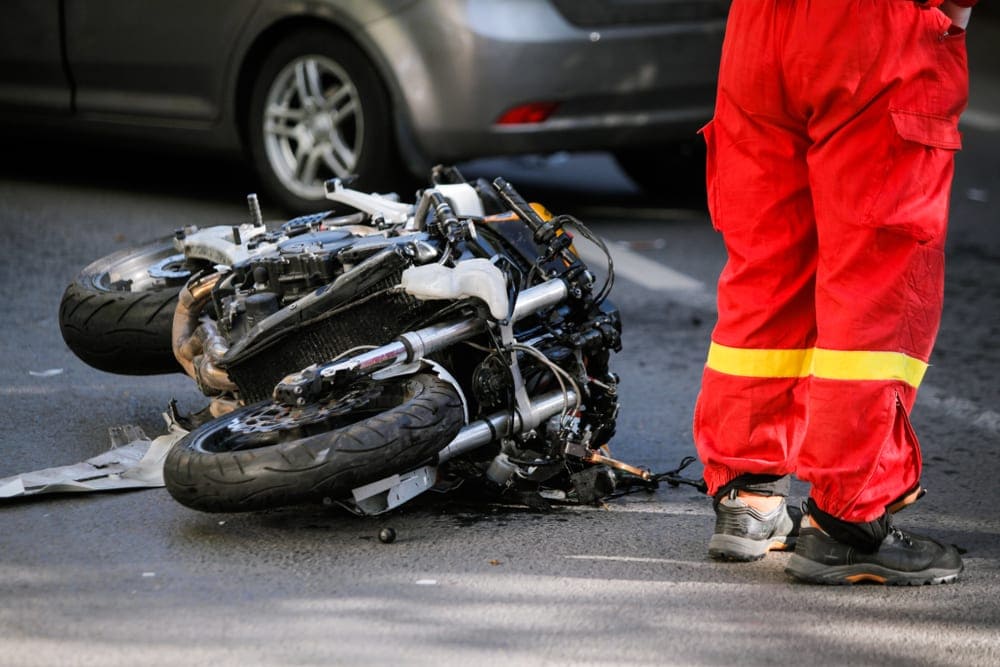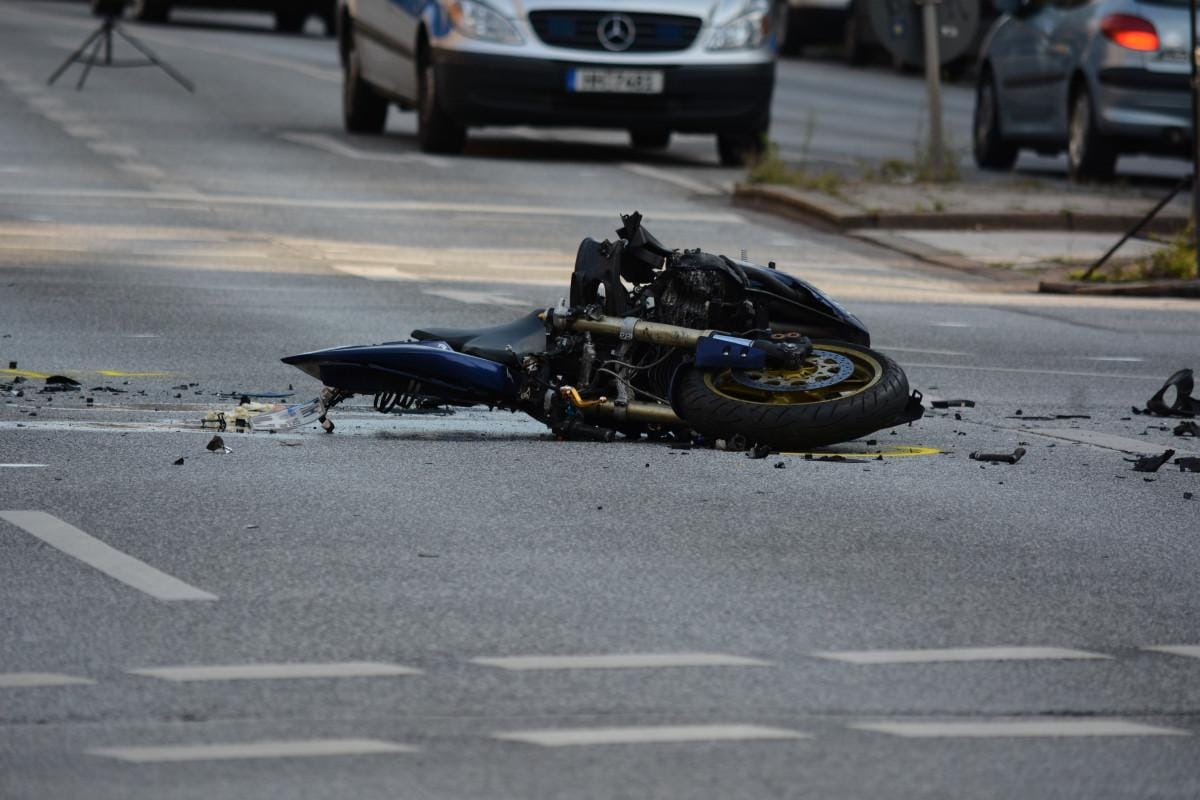
The roar of your engine. The wind slices through a warm Vegas night, the freedom of the open road gone in an instant. When a motorcycle crash tears through your routine, it doesn’t just leave behind physical injuries. It leaves fragments of fear, sleepless nights, and the silent weight of emotional pain. In the aftermath, you may find yourself overwhelmed by not only medical bills and lost wages but also the invisible wounds no one else can see.
That’s why understanding how to value pain and suffering after a motorcycle crash becomes more than a legal question; it becomes a personal reckoning. Behind every bent frame and broken bone lies a human being trying to make sense of a world that shifted without warning.
But here’s what often gets missed: your suffering matters. The ache in your shoulder, the trauma behind your eyes, the way even a short ride fills you with dread, these aren’t just personal battles. They are valid claims, protected by Nevada law, that deserve recognition and compensation.
So take a moment to ask yourself the question that often gets overlooked: What is your pain truly worth, and are you prepared to claim the value it deserves?
What Counts as Pain and Suffering?
In personal injury cases, pain and suffering refer to non-economic damages that don’t have a clear price tag. While medical expenses, property damage, and lost wages are economic damages with direct financial value, pain and suffering compensation covers the physical pain, emotional distress, and mental anguish you experience during and after the incident.
In a motorcycle accident case, pain and suffering may include:
- Chronic pain from broken bones, nerve damage, or internal injuries
- Emotional trauma, such as anxiety or post-traumatic stress disorder (PTSD)
- Mental distress caused by permanent injuries or a shift in daily life
- Loss of enjoyment, especially if your injuries affect your ability to ride, work, or socialize
Nevada law allows victims to recover non-economic damages in personal injury claims, including those arising from motorcycle accident claims. While no statutory cap exists for pain and suffering in most vehicle accident cases, the value must be supported by substantial evidence.
How Is Pain and Suffering Compensation Calculated?
There’s no universal formula to calculate pain and suffering. However, two widely accepted methods are commonly used: the multiplier method and the per diem method.
1. The Multiplier Method
This method multiplies your total economic damages, such as medical bills and lost wages, by a number typically ranging from 1.5 to 5, depending on the injury severity and factors influencing pain, such as the duration of recovery and the impact on your lifestyle.
For example:
- If your medical expenses and lost wages total $50,000 and your suffering is severe, your multiplier may be 4.
- Your total pain and suffering damages would then be: $50,000 x 4 = $200,000.
2. The Per Diem Method
The per diem method, derived from the Latin phrase “per day,” assigns a daily dollar value to your suffering. This amount is multiplied by the number of days you experience physical pain or emotional pain from the injury.
For instance:
- If $300 is assigned per day and your recovery spans 180 days, the pain and suffering settlement may reach $54,000.
Courts in Nevada may consider both the multiplier and per diem methods. However, actual compensation varies by case and depends on the strength of supporting evidence.
On the other hand, insurance companies may attempt to minimize payouts, especially in motorcycle accident settlements, unless you present compelling documentation.
What Evidence Do You Need to Prove Pain and Suffering?
To win a pain and suffering claim, you must go beyond words; you must gather evidence. Courts and insurance companies require proof that your emotional and physical injuries have deeply affected your life.
Key documentation includes:
- Medical records detailing diagnosis, treatment, and ongoing medical care
- Statements from medical professionals describing pain levels and limitations
- Photographs of physical injuries over time
- Mental health evaluations, especially if you suffer from PTSD or depression
- Personal journals or testimonies showing how the motorcycle crash altered your daily life
- Witness statements from family or coworkers supporting your suffering claims
Under Nevada Supreme Court guidance, evidence must be clear and consistent. The stronger your proof, the more likely it is that you’ll receive fair compensation.
How Do Insurance Companies Respond?
Insurance companies assess pain and suffering damages differently from courts. They typically rely on software tools and internal formulas that may undervalue non-economic harm.
Their common tactics include:
- Claiming your injuries aren’t serious enough to justify pain and suffering compensation
- Challenging your emotional distress as subjective and unverifiable
- Offering quick settlements that exclude the pain and suffering component
That’s why presenting substantial evidence is vital. An experienced personal injury lawyer can help you estimate pain accurately, organize medical records, and demonstrate how your injuries affect your mental health, mobility, and work capacity.
Factors That Influence the Value of Your Claim
Many factors influence the value of your suffering compensation, including:
- Severity of the physical injuries (e.g., brain injuries, spinal damage, or permanent disability)
- Recovery timeline and need for ongoing medical care
- Impact on employment, including lost wages or reduced earning potential
- Level of emotional distress, such as anxiety, fear of riding again, or relationship strain
- Effect on your daily life, including hobbies, mobility, and independence
- Circumstances surrounding the crash, such as whether the driver acted recklessly or was intoxicated
The court or negotiating party weighs these elements when deciding how suffering damages are calculated. Severe injuries often trigger a deeper emotional toll on the victim’s life.
How Nevada Law Treats Pain and Suffering After a Motorcycle Crash
In Nevada, valuing pain and suffering after a motorcycle accident isn’t abstract; it’s a legal right rooted in the principle of full compensation. Under Nevada Revised Statutes (NRS) § 41A.035, while medical malpractice cases may have caps on non-economic damages, there are no statutory caps on pain and suffering damages in standard personal injury cases like motorcycle accidents. This allows injured victims to pursue full, fair compensation based on the unique impact of their injuries.
Courts require substantial evidence, such as medical records, expert testimony, and proof of daily impact, to justify these awards. Under NRS § 41.141, Nevada follows a modified comparative negligence rule, which means an injured rider can recover compensation only if they are less than 51% at fault. However, the final award, including pain and suffering, will be reduced by their percentage of fault.
An experienced motorcycle accident lawyer can help injured riders gather the necessary evidence, handle fault disputes, and ensure their suffering is fully and fairly valued. Nevada law ultimately gives victims the opportunity to recover just compensation without arbitrary limits, as long as they clearly prove the extent of their pain and suffering.
Why Valuing Pain and Suffering Matters
When physical injuries heal, emotional scars often remain. Pain and suffering aren’t just buzzwords; they define the depth of your experience after a traumatic motorcycle crash. Without proper valuation, you risk walking away with a settlement that addresses your medical treatment but ignores your humanity.
Understanding how suffering compensation works ensures:
- You don’t undervalue your claim
- You prepare for legal representation with clarity
- You empower yourself with legal knowledge grounded in Nevada law
Every motorcycle accident case is different, but all victims deserve a voice, especially when pain follows them long after the crash.
Seek a Fair Settlement with Legal Support
If you’ve endured physical pain, emotional distress, or mental anguish after a Las Vegas motorcycle crash, you have the right to pursue full and fair compensation. Nevada law supports your claim, but proving pain and calculating suffering damages requires preparation, documentation, and persistence.
Insurance companies may use internal guidelines that result in lower valuations of non-economic damages. Strong documentation helps ensure your experience receives fair consideration. You deserve more than just coverage for your medical bills; you deserve acknowledgment of your pain.
The Bourassa Law Group is here to help you. Our personal injury attorneys stand ready to gather evidence, build a strong personal injury claim, and fight for the fair compensation your life demands. Contact us today for a free consultation.





